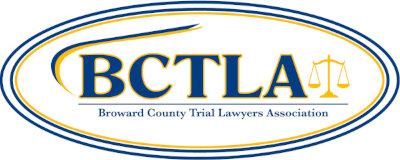One of the most frustrating events that can happen during litigation is when the Insurance Carrier fails to produce some documents during what’s known as the discovery phase. Typically, this is due to its own determination that certain materials in its possession enjoy some established “privilege” or are just not subject to production due to some legal standard. As various courts have demonstrated, in the absence of a qualified privilege (so long as its raised in a timely manner), the only determination that needs to be made for something to be discoverable in litigation is that it be “relevant to the subject matter of the pending action” and that it “appears reasonably calculated to lead to the discovery of admissible evidence.”[1]
When insurer, People’s Trust Insurance Company (“People’s Trust”), filed its petition for writ of certiorari[2] to the First District Court of Appeals (DCA), it was reminded that not all that an insurer places on a privilege log is automatically protected. In Duval County, FL, in a breach of contract action between People’s Trust and its insured (“Foster”), discovery was underway. During discovery, Foster requested, among other items, People’s Trust’s underwriting manual at the time of the issuance or renewal of his policy. This was due to People’s Trust having raised as an affirmative defense that the loss suffered was due to damage that predated the policy period. After a hearing was conducted on Foster’s motion to compel production of such documents from People’s Trust, the lower court granted Foster’s motion. As a result, People’s Trust filed their petition to avoid producing such manuals under the court order.
Typically, DCA’s are courts of appellate jurisdiction that are known for hearing matters once they’ve been litigated and granted a final judgment in lower courts. However, petitions, such as writs of certiorari, arise from a different source called original jurisdiction. This is not a civil procedure class, so I won’t bore you with much more than to say the relief being sought by People’s Trust (which seeks relief from orders that govern discovery) have a particularly high threshold to meet to even be heard and considered.[3] Here, the 1st DCA concluded that while there is history of various Florida courts having quashed erroneous discovery orders in the past on certiorari, People’s Trust had failed to meet that threshold in its petition. The Court stated that People’s Trust had created a gross generalization about underwriting manuals not being discoverable in breach of contract cases that was, well, unfounded.[4] People’s Trust had failed to meet the threshold, which was to show a clearly established principal of law had been violated when the lower court had granted the motion to compel production of its underwriting manuals. The 1st DCA tried to find some ascertainable grounds for meeting such a threshold, but given that People’s Trust’s assertion was very broad, and the hearing transcript of the lower court’s decision was unavailable, there was “no definitive basis upon which to quash the circuit’s discovery order.”
So remember, when you’re in litigation and your insurer lists certain materials in its privilege log, don’t just take its word. If your insurer is relying on a defense and there are materials on its privilege log you believe touch on such defenses, try and challenge the privilege. Various courts will entertain the motion, perhaps even order an in-camera inspection of said documents to determine the validity of the privileges asserted. One thing is for certain, and that is that insurance companies cannot hide behind a privilege that Florida courts agree does not categorically exists.
If you have a question regarding this article, or your claim in general, follow the link here, email us at info@schirmerlaw.com, call us at 754-260-5410, or stop by our Fort Lauderdale office for a free consultation. Your Loss is Our Concern.
DISCLAIMER: This blog/article, and its representations, do not equate to legal advice. All representations, characterizations, and impressions made directly or inadvertently are solely those of the Author/Law Firm and cannot be taken as legal advice. Such material is being made available to the public for educational purposes only as well as to give a general understanding of the laws upon which it speaks. By using this article, You, the reader, understand that there is no attorney-client relationship formed between you and the Author/Firm which publishes this blog/article. This Blog/Article should not be used as a substitute for competent legal advice from a licensed practitioner of law in your State.
[1] Fla. R. Civ. P. 1.280(b)(1)
[2] A Writ of Certiorari (or “to be made certain” in Latin) is a proceeding in which a party seeks an intermediary appellate court (in Florida, known as the District Courts of Appeal) to review a decision of a lower trial court. Typically, the party is seeking a determination that the lower court’s decision was erroneous, is otherwise unappealable, and the harm caused is irreparable, cannot be remedied on appeal and the ruling “is a departure from the essential requirements of law.”
[3] The Court cites to McCloud v. Tackett, 308 So. 3d 687 (Fla. 1st DCA 2020) (describing relief as “extremely rare”)
[4] The Court cites to American Integrity Ins. Co. of Florida v. Venable, 324 So. 3d 999 (Fla. 1st DCA 2021); Avatar Prop. & Cas. Ins. Co. v. Simmons, 298 So. 3d 1252 (Fla. 5th DCA 2020)









